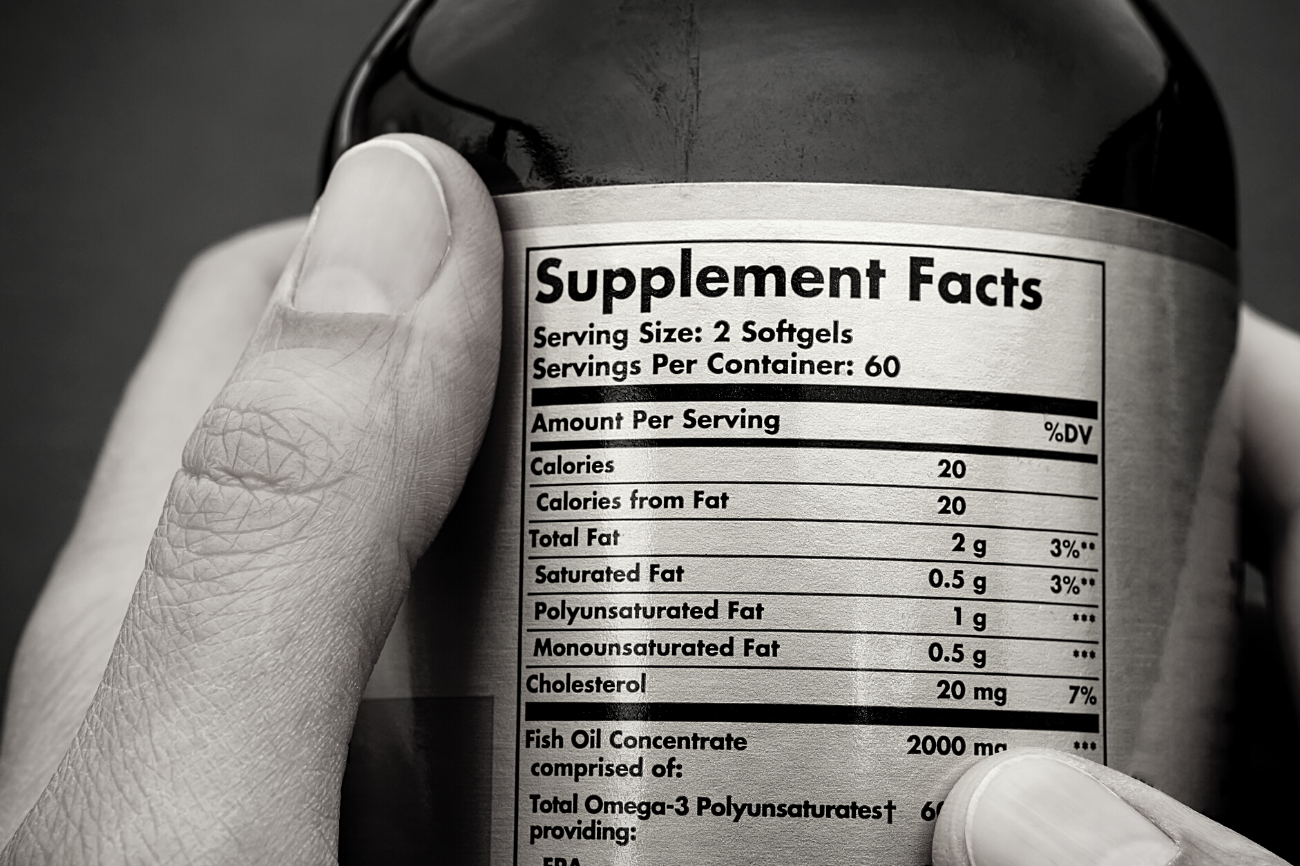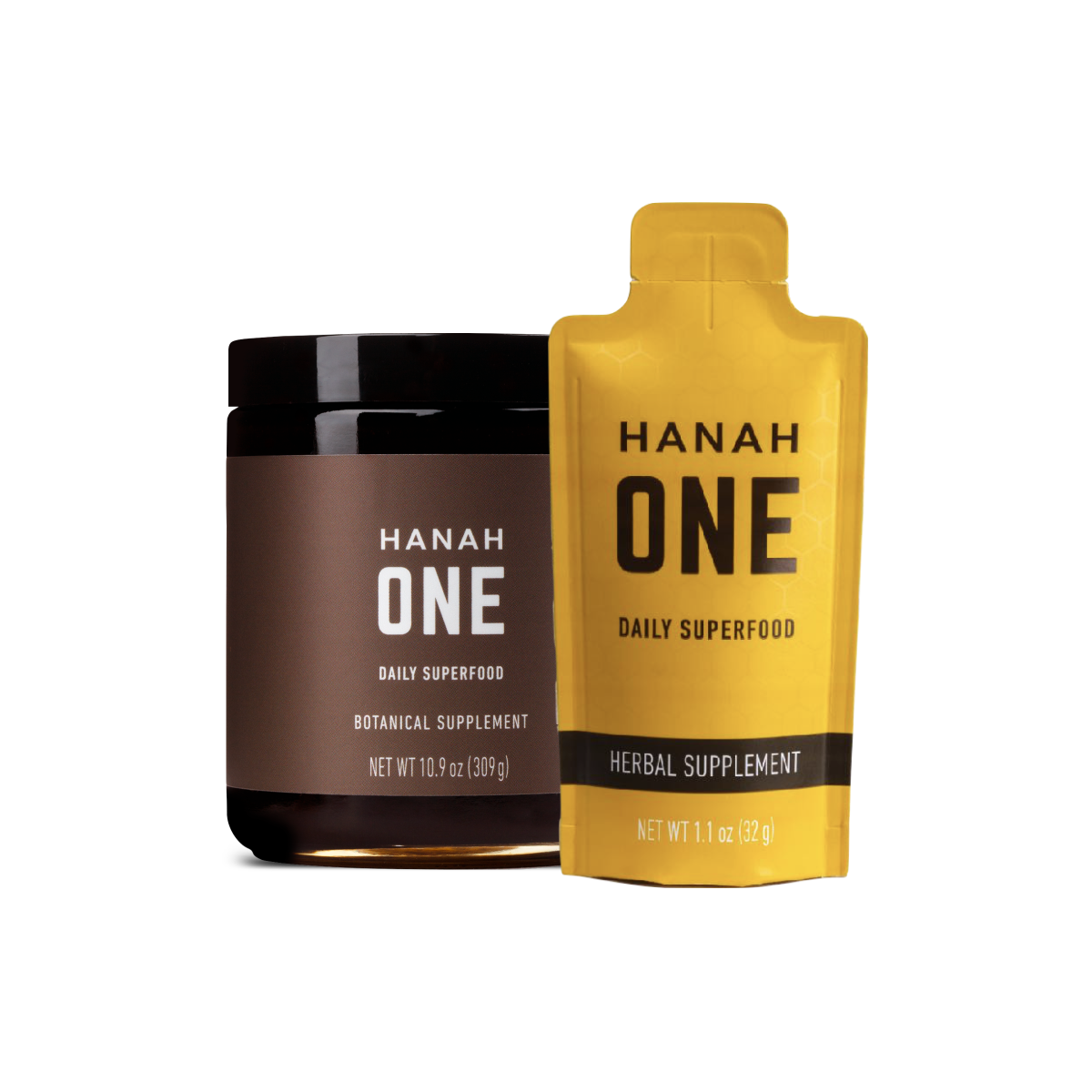Supplement Facts: You're getting scammed

Supplement Facts: An exclusive HANAH series meant to lift the lid off the supplement industry. An industry known for misinformation, false claims and deception. With over 85,000 supplements on the market today, our intent is to provide you with the information you need to ensure you are fully equipped to:
- Differentiate between low-grade and premium supplements
- Understand the current supplement market and how we got to now
- Identify red flags on labels and in descriptions
- Avoid potentially harmful ingredients
- Choose companies whose pure products you can trust
- Integrate supplements into a healthy lifestyle
- Further enhance such a way of life with other beneficial practices
In the previous installment of “Supplement Facts”, we made our case for why supplement use is necessary by challenging the assumption that you can get all the nutrients you need from nutrition alone, seeing how pollution, overly-intensive monoculture farming and chemicals have diminished food quality. We know that supplement use is warranted, but unfortunately the current state of the industry makes it extremely difficult to know that what you’re buying is legitimate. To help you navigate the murky waters of the supplement market, we’re revealing some common tricks from the ethically questionable playbook of the industry. Plus, we’ll look at some of the limitations of terms like “organic,” “local" and “all-natural.” All of which may lead you to an inconvenient yet unavoidable truth: most supplement companies are probably ripping you off.
How big companies game the system

Supplement manufacturers can claim pretty much whatever they want on their labels, website, and advertisements without prior approval, as long as they add the caveat: “These statements have not been evaluated by the Food and Drug Administration. This product is not intended to diagnose, treat, cure, or prevent any disease.” If you’re to find your way through the supplement maze so that you, your wallet and your health come out the other end unscathed, you need realize that in all likelihood, one or several companies are lying to you. When we interviewed Dr. Venugopal, an Ayurvedic practitioner in Kerala, India, who has decades of experience in sourcing ingredients for botanical supplements, he gave us four levels of purity and quality (with level 1 being the best):
- Level 1: The right herbs picked by the right people, at the right time of year, from the right place (which is biodiverse, and where herbs growing wild are harvested sustainably).
- Level 2: Organic monoculture (not biodiverse, farmed instead of wild harvested).
- Level 3: Grown with pesticides and/or in areas contaminated by heavy metals. And/or random sourcing from whichever wholesaler is cheapest.
- Level 4: Use of discarded cuttings/trimmings that higher level producers sell instead of throwing away. Not the whole plant. [1]
Now let’s consider the primary motivator for most supplement companies: profit. If they’re trying to compete on price, produce large quantities, and corner the market, level 1’s methodology isn’t going to work. At best they might drop down to level 2, but it’s most common for them to languish at level 3 or even level 4. Every shortcut—whether it’s in sourcing, production, distribution, or any other area—represents a chance to save money and drive costs down. The same goes for using lookalike fillers and taste-alike artificial flavorings that dupe consumers who can’t tell the difference and believe that all fish oil, ashwagandha, or medicinal mushrooms are created equal. The less spent on raw materials, the higher the potential profit margin. That might be good news for corporate fat cats’ shares and bonuses, but not so much well-meaning consumers.
Oh, organic
If you had to pick a single term that health-conscious customers look for when buying “natural” (more on this term in a moment) supplements, it’d have to be organic. After inevitable backlash to the use of harsh, industrial chemicals like pesticides and fertilizers in food production, the USDA put forth The Organic Foods Production Act of 1990—a set of universal standards for produce cultivated in pre-industrial ways. Health food chains like Whole Foods and Natural Grocers were quick to jump aboard the organic bandwagon and bigger businesses started gobbling up smaller ones that had hung their hats on organic (think PepsiCo purchasing Naked Juice). Suddenly, there was some serious marketing muscle behind the organic movement. [2]

The apex of this was Amazon’s $13.7 billion purchase of Whole Foods in 2018. Generational traits and preferences also came into play, with Millennials affiliating with socially conscious, cause-driven brands that are committed to higher standards like organic. All of this propelled organic goods out of their small, quirky niche and into the mainstream, as shown by the fact that organic food sales more than doubled between 2009 and 2018, growing from $21.3 billion to $47.9 billion. [3] Supplement manufacturers took note and started including organic ingredients in their products, too.
While there’s no doubt that organic products are largely better for both people and the planet (and, for that matter, shareholders), they’re not perfect. First, there’s the issue that many customers who pay extra for organic don’t really know what that premium is for. A study conducted by the consultancy BFG found that though 70 percent of under-35s surveyed said they regularly purchased organic products, only 20 percent were confident in explaining what the term meant. [4]

Certain elements of organic farming can contribute to improvements in soil quality, but crops that are intensively farmed in a monoculture system—organic or otherwise—are still growing in ground depleted of macro and micronutrients. An investigation led by The Globe and Mail and CTV News concluded that while the amount of vitamin C in Canadian oranges has slightly increased, “You would have to eat eight oranges today to get the same amount of vitamin A your grandparents got from a single orange. And you would need to eat five to get the same level of iron.” [5] Such findings indicate that even if you’re buying food and supplements labeled organic, you might not be getting the kind of nutritional payoff that your extra dollars deserve.
The ambiguity of “all-natural”
When it comes to products that are supposedly “natural” or even “all-natural,” those terms really mean whatever producers and, for our purposes, supplement companies, want it to mean. The backlash against artificial colors, dyes and preservatives and more recent revelations about the harmful effects of industrial vegetable oils has led to increased demand for food and supplements made sans chemicals. And rightly so. Yet some are taking advantage of this thirst for pure, natural ingredients and the ambiguity that surrounds product labeling to purportedly sell healthy foods and supplements. As Michael Pollan put it in a New York Times column, “Something in the human mind, or heart, seems to need a word of praise for all that humanity hasn’t contaminated, and for us that word now is “natural.” [6]

In the case of supplement companies, what they consumers to see when they read “natural” on their label is a pure, high-quality product that comes from the earth, hasn’t been corrupted by chemicals and can cure ailments big and small. In exchange, all they’re asking for is a few dollars to support their noble work as defenders of the “natural” world. If their narrative was always true, there’d be no problem. But all too often, the terminology they lay claim to is nothing more than a thinly veiled marketing buzzword.
Whether it’s snack foods for your kids labeled that they do contain highly processed oils (hey, if it comes from a sunflower it can’t be bad for them, right? Wrong!), fruit juices with more sugar per serving than you should get in a week (but sugar cane is a plant, isn’t it? Yes, but…), or trace ingredients that aren’t listed because their percentage is so low (see the aforementioned additives and things like sweeteners), all too many so-called “natural” products are unnaturally bad for your health. So exercise some caution, look beyond the label and check both the ingredients list and the macro and micro nutrient numbers on such foods and supplements to make sure your desire to go chemical-free isn’t being taken advantage of. As Pollan writes, “Any food product that feels compelled to tell you it’s natural in all likelihood is not.” [7]
Liking local?

As it stands, wild harvested produce is typically the best you can get, and the more remote the region, the better, because the less likely it is that pesticides, fertilizers and heavy metals have contaminated the crop. The next level down is arguably organic and local. Yet this comes with a caveat—there are no regulatory guidelines or even any unspoken agreement between producers that defines what “local” really means. Best case scenario? What you’re about to fork over your hard-earned cash for is from a nearby farm or wild-harvested source. Yet it could mean two miles, twenty or 200. Perhaps even more.
So while buying local has a warm, fuzzy, homespun feel like buying a book from an indie bookstore or giving your business to a Ma and Pa shop, you would do well to go beyond the label and look into where exactly that box of peaches or that bottle of bee pollen extract are coming from. Same goes for any supplement that uses localism in its marketing campaigns or on its products.
Consumers’ intentions are good—they want to be healthier, improve their physical and mental performance, and optimize their recovery from exercise. And there are some companies that genuinely want to help them do so with pure, high-quality, efficacious products. Yet unfortunately, there are also many more that are in the supplement business for one reason only: dollars and cents. Our intention is not to discourage you from supplements, as we’ve shown in our previous installment, they're more necessary than ever. Rather, we want to arm you with all of the knowledge you need to make the best decisions possible for your health and well being.
Stay tuned
“You're getting scammed” is the 2nd topic in our ongoing blog series, Supplement Facts. In the coming weeks, we’ll dive deeper into the supplement industry to provide you with all of the necessary information to make informed decisions on your journey to long term health.
- Did you miss the previous installments of Supplement Facts? Catch up here.
- Learn more about HANAH's committment to purity, quality and results.
Sources
- Author interview with Dr. Venugopal, Kerala, India, October 2018.
- Jenette Rowan, “Look Out Food Startup, You're About to be Acquired,” Food Institute, June 1, 2018, available online at https://foodinstitute.com/blog/own-small-food-company-to-be-acquired.
- Jeff Gelski, “U.S. Annual Organic Food Sales Near $48 Billion,” Food Business News, May 20, 2019, available online at https://www.foodbusinessnews.net/articles/13805-us-organic-food-sales-near-48-billion.
- Joe Pinsker, “Millennials Like 'Organic'—Even if They Have No Idea What It Means,” The Atlantic, November 23, 2014, available online at https://www.theatlantic.com/business/archive/2014/11/millennials-like-organiceven-if-they-have-no-idea-what-it-means/383006/.
- André Picard, “Today's Fruits, Vegetables Lack Yesterday's Nutrition,” The Globe and Mail, July 6, 2002 (updated April 17, 2018), available online at https://www.theglobeandmail.com/life/todays-fruits-vegetables-lack-yesterdays-nutrition/article4137315/.
- Michael Pollan, “Why ‘Natural’ Doesn’t Mean Anything Anymore,” New York Times, April 28, 2015, available online at https://www.nytimes.com/2015/05/03/magazine/why-natural-doesnt-mean-anything-anymore.html.
- Ibid.






Leave a comment
This site is protected by hCaptcha and the hCaptcha Privacy Policy and Terms of Service apply.